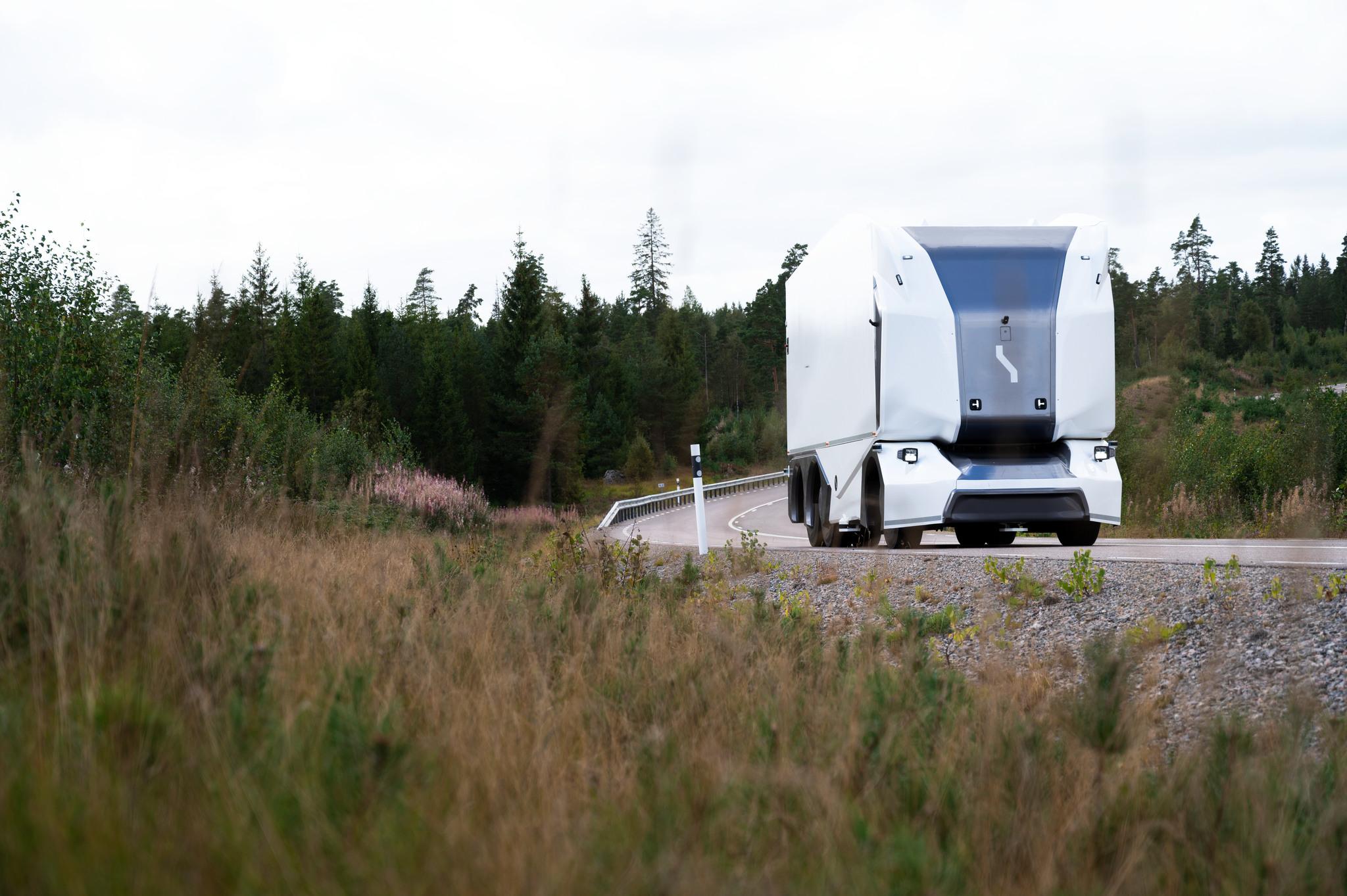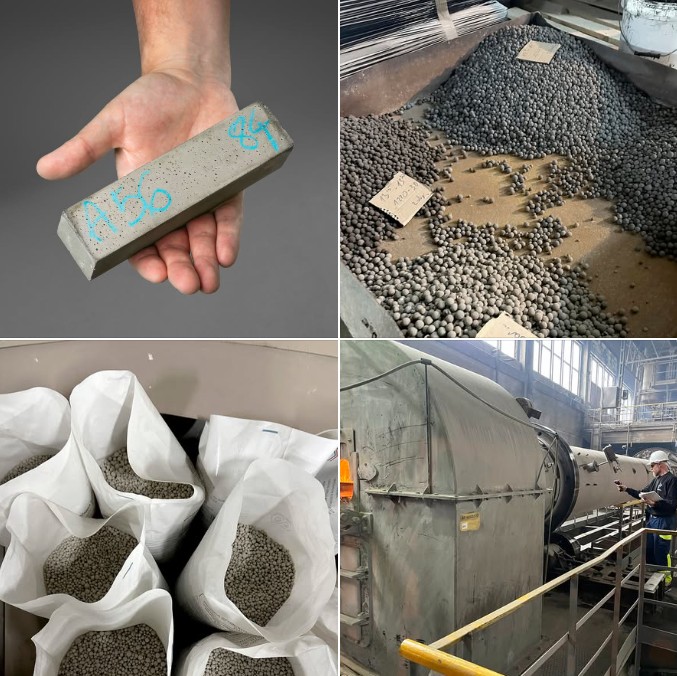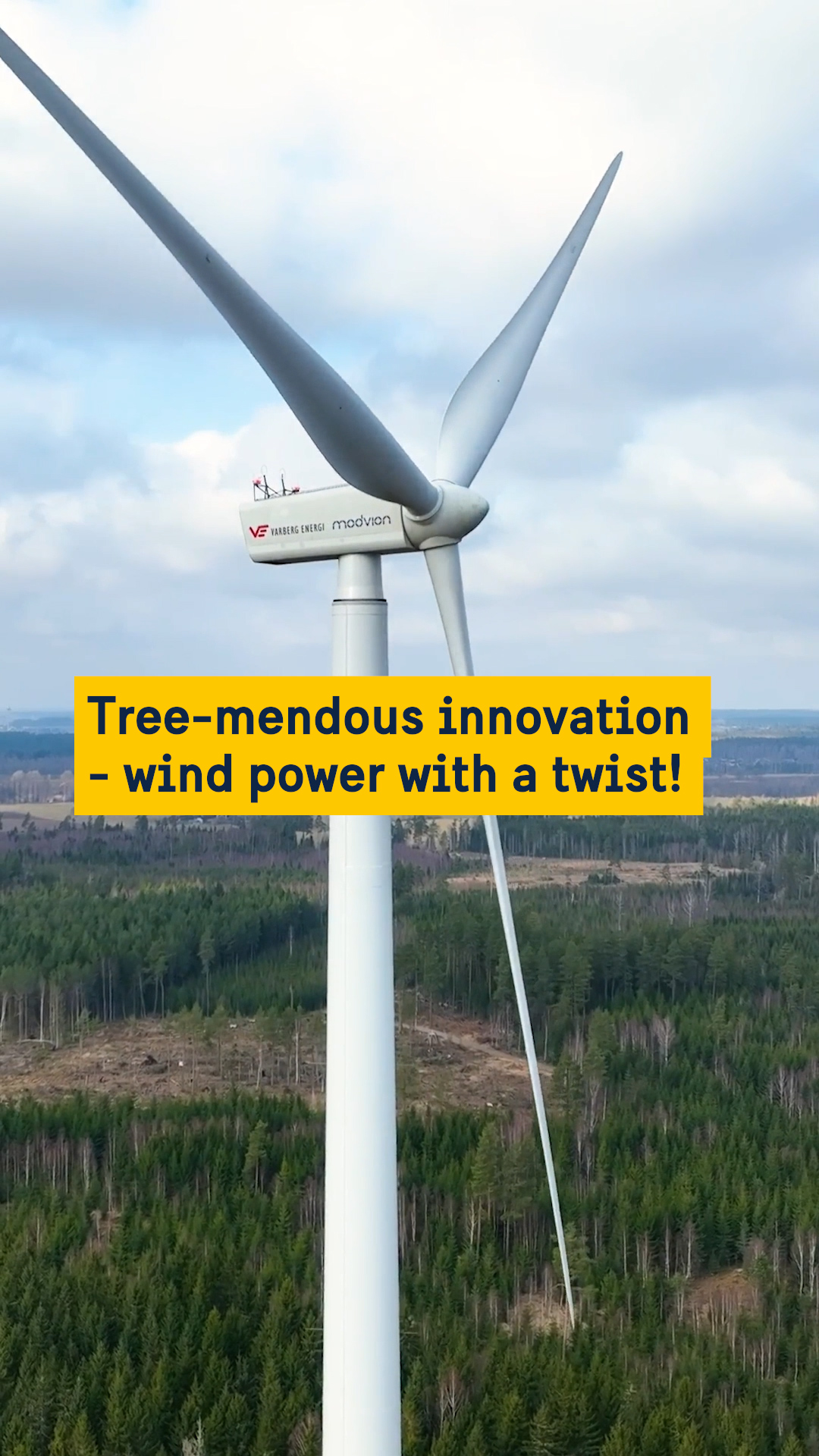Swedish companies take on the green transition
Sweden is contributing to the green transition. Here are some examples how.
Sweden's innovative landscape is vast and vibrant, with many Swedish companies contributing. This is due to factors such as financial support for startups and general openness towards creative solutions.
But perhaps most importantly, Sweden is known for planning for the long term, analysing possible future scenarios, and thinking ahead. This is why many Swedish companies are making a name for themselves in industries that are set to grow in the coming years, among them energy, transport, food and construction.
SWEDISH COMPANIES AND THE RENEWABLE ENERGY CHALLENGE
Sweden is a world-leading country when it comes to green energy, with around 98 per cent fossil-free electricity production. More than 70 per cent of that comes from renewable sources, the rest from nuclear power.
The government’s target is 100 per cent fossil-free electricity production by 2040.
Many Swedish companies are a part of the efforts to make Sweden’s energy greener.
CorPower Ocean
Inspired by the pumping principle of the human heart, CorPower Ocean has adapted wave energy technology and 40 years of hydrodynamic research to develop an innovative wave energy converter. This device delivers more than five times as much electricity per tonne of equipment compared with previous state-of-the-art in wave energy.
The wave energy converter is a lightweight and low-cost tool that maximises electricity generation while providing robust operation in the harshest ocean conditions.
Ferroamp
Now generating electricity is all fine and dandy, but one of the main challenges lies in the large-scale implementation of green energy. And this comes down to the place where electricity is used by everyday people. Their homes.
This is the focus area of Swedish company Ferroamp. The company builds multiple, connected systems, including solar panels, batteries to store excess energy of the day to use at night, and more. These systems help property owners use more clean energy, save money and rely less on the power grid.
SWEDISH COMPANIES ELECTRIFYING TRANSPORT
Sweden’s transport sector is currently working hard to leave fossil fuels behind and create smarter mobility for the future.
By 2030, Sweden is expected to have 2.5 million rechargeable vehicles in traffic. At the same time, electricity consumption is expected to increase by 60 per cent till 2045.
With that being said, the race to electrify transport is not confined to the roads.
Candela
A standard 7.5-metre petrol boat consumes substantially more fuel than a family car. This is according to Candela, a Swedish company with the goal of speeding up the transition to fossil fuel-free lakes and oceans.
By rethinking efficiency in marine transportation, Candela has pushed the performance boundaries of electric vessels. The company has created what can only be described as a flying ship!
Candela's 12-metre long P-12 is the world’s first high-speed and long-range electric ferry. Equipped with hydrofoils, the ferry basically ‘flies’ above the surface of the water. It can achieve a cruising speed of 20-plus knots, while consuming 80 per cent less energy than conventional ships.
In 2024, Candela started piloting a commuter route in Stockholm’s public transport system.
Elonroad
Let’s move from water to land, and to the evolving sector of electric vehicles. Here, charging is a major aspect to improve. This is why Elonroad, a Swedish company founded in 2010, decided to build electric roads – as in roads that charge vehicles on the move or while parked.
Electric roads could lead to car batteries being smaller, hence cheaper, which in turn could mean more electric vehicles on the road and cut emissions.
SWEDISH COMPANIES TRANSFORMING FOOD
The Swedish food industry is one of the largest industries in the country. Sweden’s overall strategy is to increase food production while making it greener, with one of the goals being to use more locally sourced produce.
There are many innovative Swedish companies that contribute to a more sustainable food production – with a worldwide effect.
Melt&Marble
For the vegans out there, Melt&Marble has good news, it is quite possible for a burger made without animal products to be equally delicious and satisfying as a burger that uses beef. The key: fat.
Melt&Marble recreates the desired characteristics of animal fats through precision fermentation. In this process, the microbial metabolism is rewired and the structure and properties of the fats produced by those microbes are altered.
The company’s goal is to produce a sustainable, animal-free food product ؘjust as delicious as animal fat – and completely guilt-free. Well, unless you’re on a diet.
Stockeld Dreamery
What is better than a burger? A cheeseburger!
Now that one company has solved the taste of the fat part, here comes Stockeld Dreamery to solve the cheese part.
Founded in 2019 by a previous software company owner, the aim of this company is to develop tasty, climate-friendly alternatives to our favourite foods. The company launched after two years of exploring new business ideas where reducing climate impact could be built into the business model.
Stockeld Dreamery – based in Stockholm and New York – now produce cream cheese made from chickpeas and lentils, and sliced, fast-melting plant-based cheese, which is perfect for burgers, according to the company.
SWEDISH COMPANIES RENOVATING CONSTRUCTION
Around one-tenth of Sweden’s growth domestic product (GDP) comes from construction. The global construction industry has historically accounted for a large share of carbon emissions – something which has to change. We need to build a better future, literally.
CemVision
CemVision is a fast growing Swedish startup that decided to take what is probably the most common building material and reinvent it.
Cemvision’s product, delightfully called Re-ment, consists of two cement binders produced using industrial waste products instead of virgin limestone. This means the production avoids both most cement CO2 emissions and the extraction of raw materials.
The company has also electrified the production process, which lowers the emissions associated with the manufacturing process itself, typically around 30–40 per cent of total cement CO2 emissions.
Modvion
Moving on to another very common building material… Wood!
A very sustainable building material, if only we could build more things out of it!
Swedish company Modvion not only accepted this challenge, but also succeeded in building wind turbines out of wood.
Wood has higher specific strength than steel, enabling lighter constructions with fewer bolts which, in turn, means less frequent inspections. Also, Modvion’s patented design allows towers up to 200 metres tall to be transported using regular lorries, which solves major logistical issues. And once the tower is decommissioned, the wood can be used in construction.
Wanted: skilled labour
The green transition is powering through in Sweden, via great ideas and skilled labour. Swedish companies are always on the lookout for talent, now more than ever. Something to keep in mind when thinking of your next step in life?


